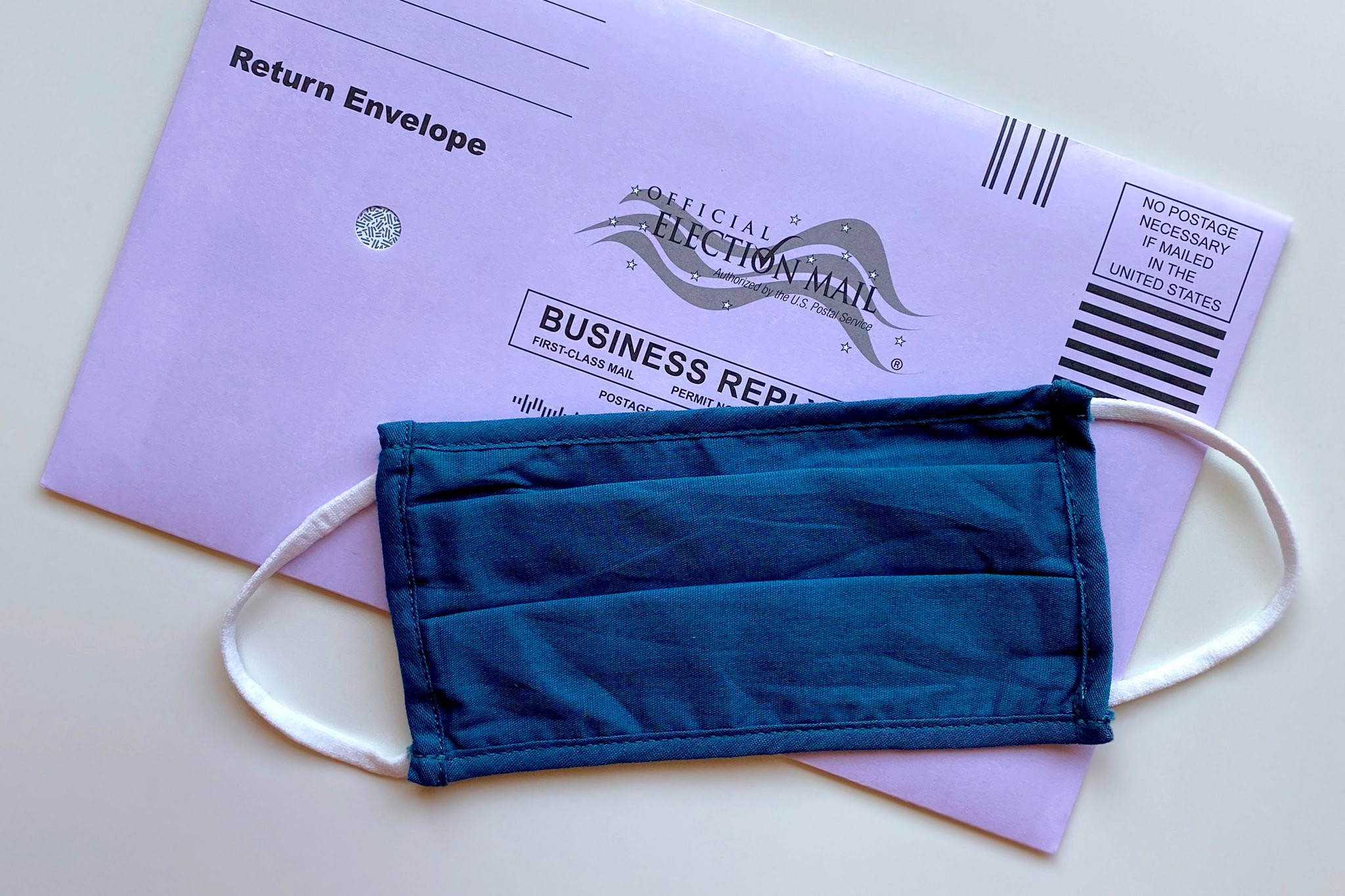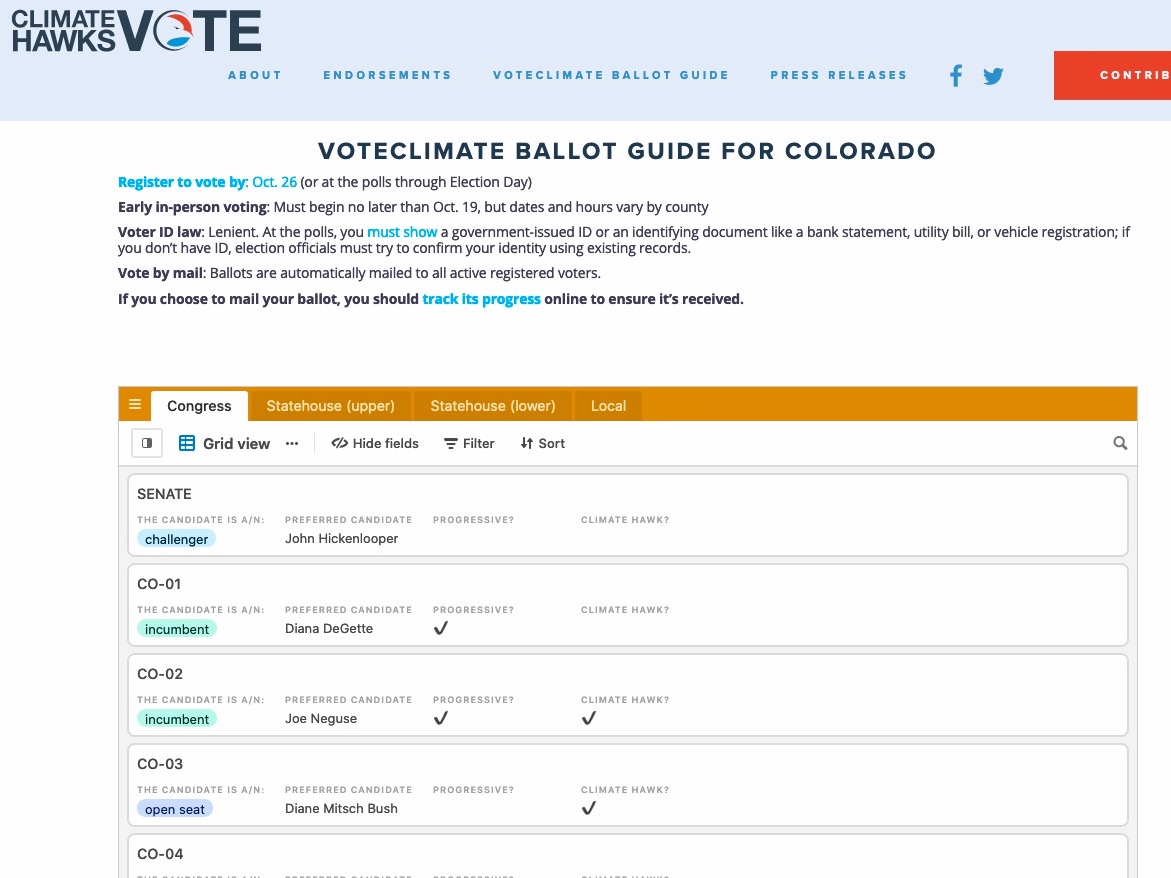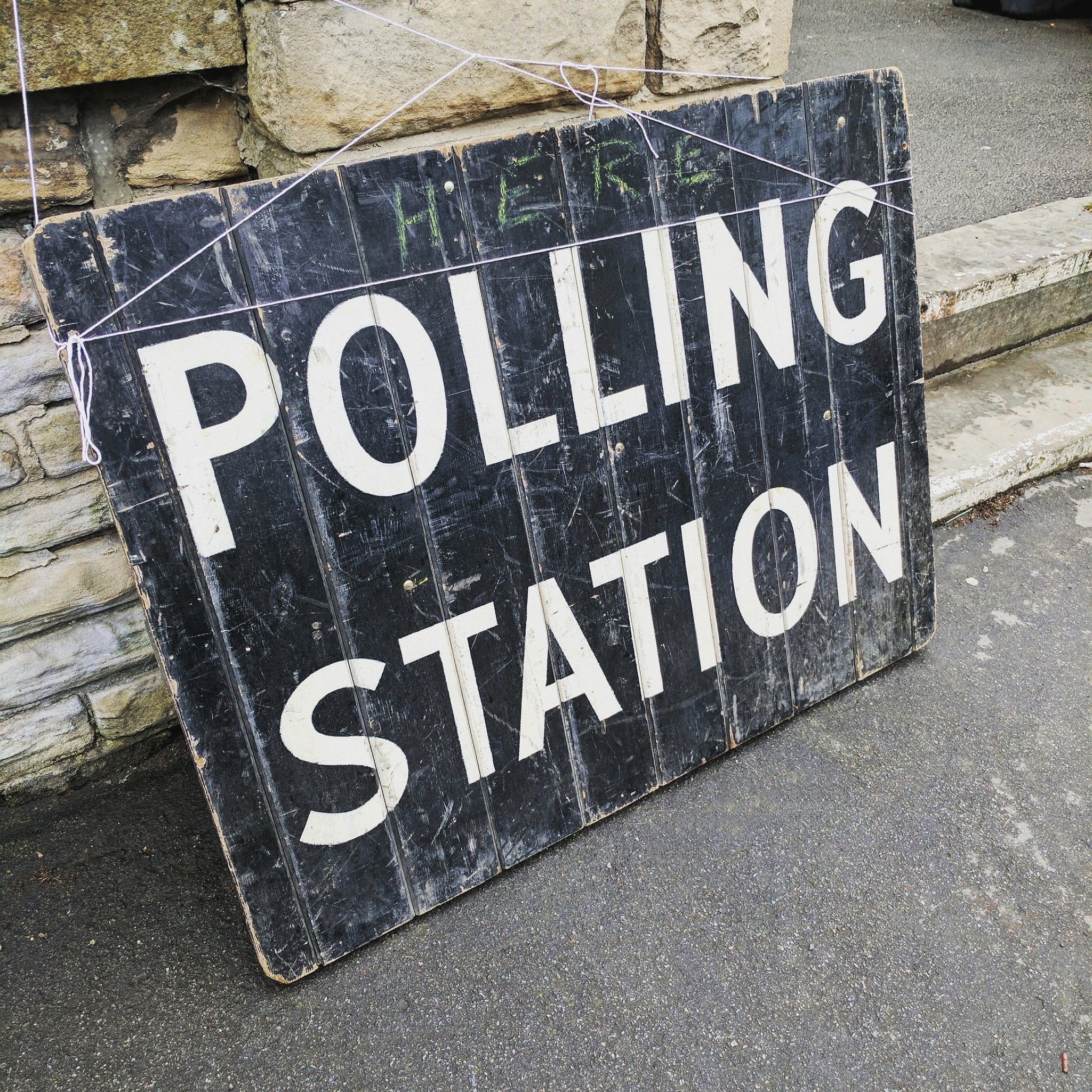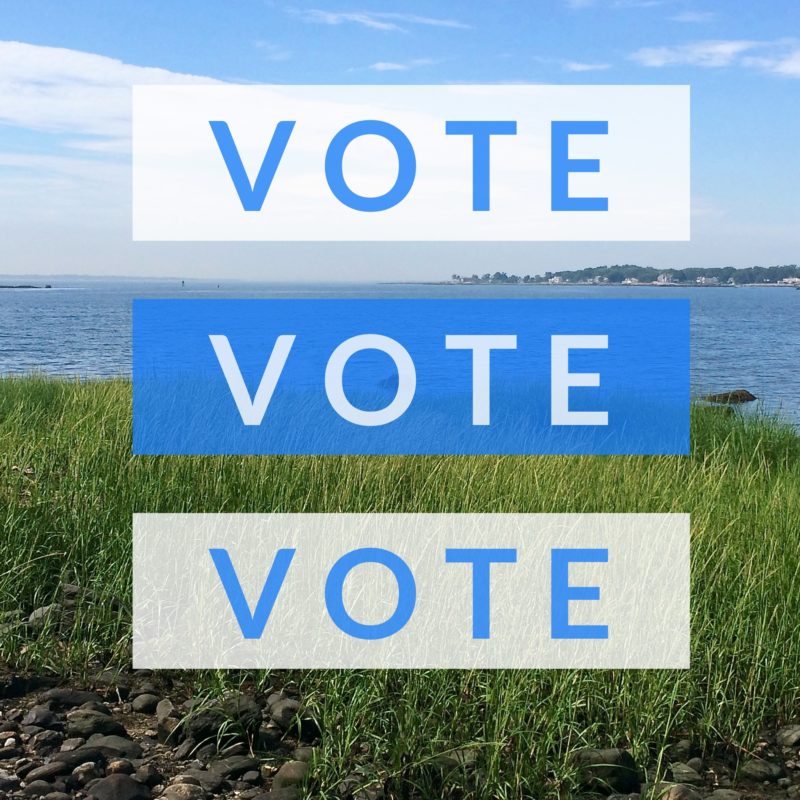Calling all environmentalists, climate activists, tree huggers, and greenies: Vote for the Planet!
Yes, I’m talking to you — that person who’s a committed and caring protector of the environment; who faithfully recycles and avoids plastic straws like the plague. You’re the person who’s appalled by the pace of climate action and wants to do something to help the planet.
But have you voted in every election — including state and local? If your answer is “no,” you’re not alone.
Apparently, many of us who say we vote, actually don’t. In fact, as a group, “environmentalists” have a terrible voting record. Research by the Environmental Voter Project shows that registered voters who identify the environment as their number one priority simply don’t vote. In 2016, for example, over 10 million didn’t vote (representing 50% vs 69% of all registered voters); and during the 2018 “Blue Wave” mid-term elections, only 53% (vs 57% of registered voters) of “environmentalists” showed up at the polls.
What’s going on here? Stinnett, when asked, didn’t have an answer. But what is clear to him – and me – is that we must work harder to mobilize turnout and encourage climate-friendly citizens to vote for the planet!
So get started now! These resources will help you with everything you need to know to vote for the planet.
Table of Contents
How to Vote for the Planet

Register to Vote
- Did you register? Before you can vote, you need to register. Can’t remember if you’ve registered? Check here, using Vote.org’s lookup tool.
- Register now! If you haven’t registered yet, do it now! Many states have closed their registration, but some are still open. Vote.org and Democracy Works have convenient tools to help you register in any state.
How to Vote
Many states offer three ways to vote: early (before Election Day); by mail; or in-person on Election Day. The rules and guidelines vary by state, so check your area for voting specifics and the location of your polling site.
How to Vote Resources
Vote.org is the largest nonprofit, nonpartisan voter registration and get-out-the-vote (GOTV) technology platform in America. It provides registration links and deadlines, polling location details, and other essential voting information for each state.
Democracy Works‘ How to Vote guide is an invaluable resource for state-specific information on how to vote, polling locations, key dates and deadlines, and relevant contact information.
In addition, the organization’s voter tool, TurboVote, keeps track of voter registration, absentee, and vote-by-mail rules for all 50 states, so you don’t have to. TurboVote will send you text and email reminders about registration deadlines, upcoming elections, and where to vote.
BallotReady organization helps you check your voter registration, request a ballot, and find out where and how to vote in your area. It also provides background information of every local, state, and federal candidate on your ballot. You first must make a pledge to vote!
Stay Informed on the Issues
For literature and resources related to climate change and the environment, see Green That Life’s Best Environmental Books list and Lesson 1: Stay Informed of Climate Action: 5 Effective Lessons for Engaging Your Community.
Who Should I Vote For?

Now that you’re ready to vote, who should you vote for to ensure that your vote is truly a vote for the planet? This can be a particularly tricky question when it comes to state and local elections. And what about judicial and other down-ballot candidates? Gubernatorial candidates?
To help you stay informed on the environmental records of elected officials and candidates running for office, a few organizations have put together candidate scorecards and background profiles.
Significant environmental and climate-focused legislative decisions happen at the state and local levels, so knowing where your state and local candidates stand on environmental issues is critical. According to a recent study, however, fewer than 20% of Americans can name their state legislators and even one-third don’t know who their governor is.
Please take a few minutes to visit candidate campaign websites and search for their record on environmental protection. You can even contact the candidates directly to ask for their views on environmental policy.
Voter Guides
Center for Responsive Politics: Open Secrets Site
The Center for Responsive Politics’ Open Secrets site isn’t a voter guide, per se, but its extensive data on donations that federal candidates report is particularly helpful in categorizing donations by industry. The oil and gas industry, for example, plays a major role in hindering climate action, and as such, it’s important to see which candidates are top recipients of fossil fuel industry funding.
League of Conservation Voters and LCV Victory Fund Projects
The League of Conservation Voters, a non-profit, lists its presidential (when applicable) and congressional candidates endorsed for the upcoming election, along with details on each candidate.
For additional background information, LCV’s national environmental scorecard has a searchable database of all current members of congress that includes their voting records on environmental issues.
The LCV Victory Fund supports environmentally friendly candidates and helps defeat candidates who undermine environmental progress. Visit the Fund’s Dirty Dozen and Priority Races pages to learn who the Victory Fund is targeting and why. (Candidates for upcoming elections are added on a rolling basis.)
Give Green is a project of The LCV Victory Fund and NRDC Action Votes. It provides a directory and descriptions of their “priority candidates” in federal, state, and local races.
NRDC Action Votes
NRDC Action Votes is an independent expenditure political committee that supports climate-friendly candidates. They work to mobilize the American public to lobby lawmakers and hold them accountable for their votes, both in office and at the ballot box. To that end, they announce their candidate endorsements during the election cycle.
Sierra Club
Sierra Club provides a list of their endorsements for presidential and congressional candidates. In addition, a few local Sierra Club chapters issue state-specific legislative report cards, including California, Texas, and Virginia. Check your local chapter for reports.
Vote Climate U.S. PAC
Vote Climate U.S. PAC works to elect climate-friendly candidates. The organization’s Climate Change Voter’s Guide ranks congressional, gubernatorial, and state assembly candidates, ensuring that on election day you’ll vote for the planet. You can search for your candidates either by zip code or candidate name.
Climate Hawks
Climate Hawks is a grassroots advocacy group that supports candidates and elected officials who identify climate change as a top priority. The organization provides information through its Ballot Guide on federal, state, and local candidates running in key states. You can also read about their endorsed “climate-hawk candidates”.
National Conference of State Legislatures
While primarily a resource for elected officials and candidates running for office, NCSL has excellent bill-tracking databases to allow you to see where an elected official in your district stands on any policy or legislative issue. The databases are updated weekly and cover legislative material from the 50 states and Washington, D.C. Policy areas include databases for the Environment and Natural Resources, Environmental Health, Energy, and Transportation.
Climate Cabinet
Climate Cabinet’s Scorecard tells you how often state legislators vote for or against climate action. The organization provides a full 2021 scorecard report for 3,375 state legislators in 25 states, and 2022 reports for Arizona, Minnesota, N. Carolina, and Texas legislators. Climate Cabinet also identifies the best pro-climate candidates in overlooked, high-impact races. You can search their directory by candidate name, district, or by priority level.
Want to Help? Here’s How!

Become a Poll Worker
This election season, there’s a critical need for poll workers. Visit the U.S. Election Assistance Commission website to learn how to become a poll worker in your area.
Help GOTV (Get Out the Vote)
Environmental Voter Project recruits volunteers to contact their friends and family to encourage them to vote. They do not endorse any candidates.
Citizens Climate Lobby holds Voter Participation Outreach training sessions on how to engage environmental voters. You can then join a live phone and text bank with fellow CCL volunteers. Outreach and all other CCL training sessions are free, but you must join first. Register here.
Sierra Club’s GOTV activities include sending texts, becoming part of their Presidential Election Call Team (when applicable), and participating in letter-writing campaigns. Check in periodically to get involved with current campaigns.
DIY! Even if you don’t have time to participate in one of these GOTV campaigns, you can still encourage friends and family to vote by helping them with their voting plan or nudging them to vote after you’ve voted! Share your voting activities on social media with a #ClimateVoter photo to demonstrate your vote for the planet!
Run For Office! Give it some thought before you say, No Way! I ran for office, and it was one of the most meaningful and rewarding (and yes, exhausting!) things I’ve ever done. If you’re considering it, check out Climate Candidates, an organization that assists candidates in their campaigns for positions in local and state offices.









